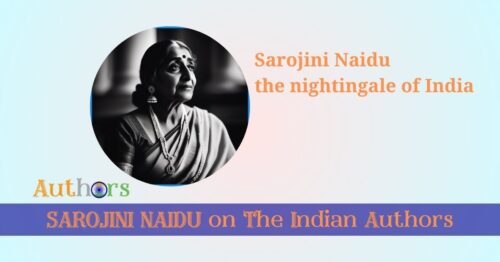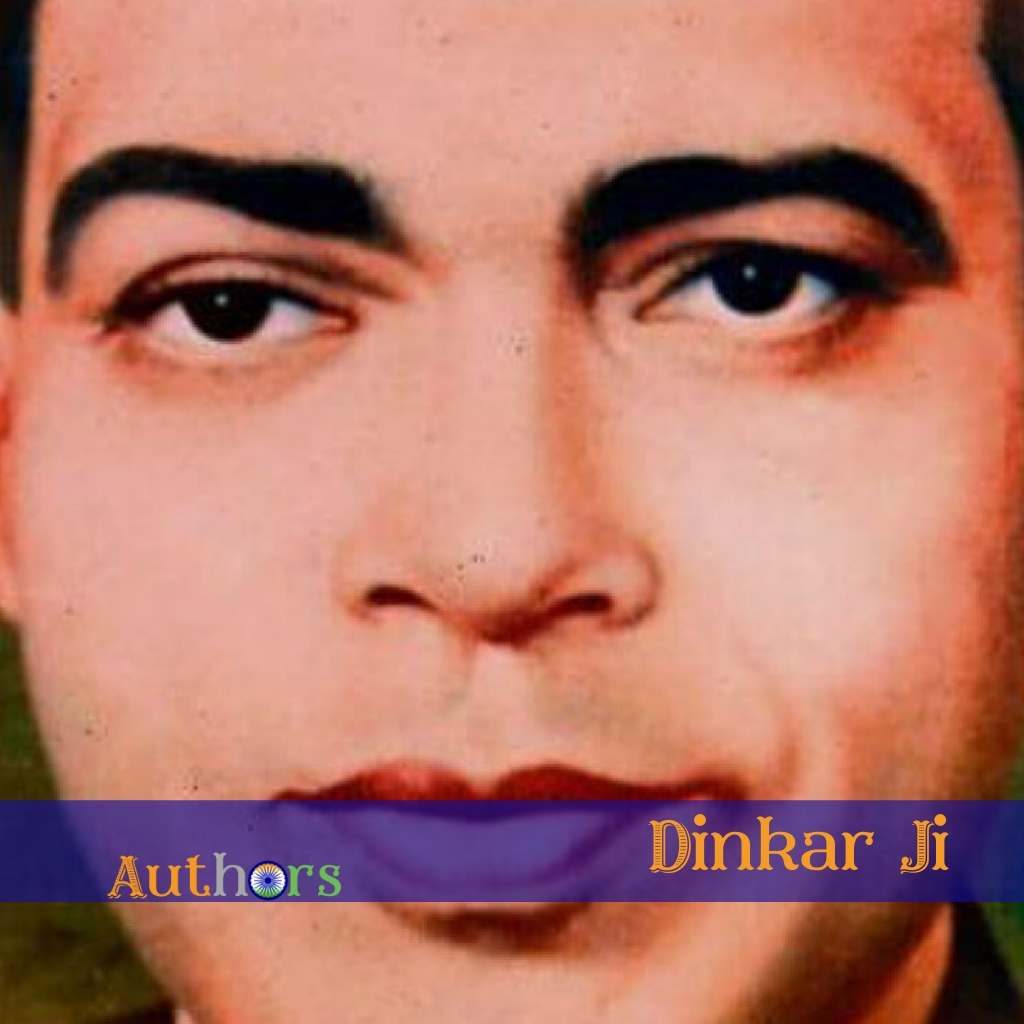Sarojini Naidu: The Nightingale of India
Name: Sarojini Naidu
Born: February 13, 1879, Hyderabad
Education: King’s College London, Girton College, Cambridge
Occupation: Poet, Political Activist
Genre: Poetry
Famous Works: The Golden Threshold, The Broken Wing, The Sceptered Flute
Notable Awards: First Indian woman to preside over the Indian National Congress, Honored on the Indian 10-rupee banknote
Sarojini Naidu stands as an iconic figure in the realms of Indian English literature, a luminary whose literary prowess is as profound as her impactful political activism. In contrast to some of her contemporaries, Naidu’s literary legacy is marked by a harmonious blend of eloquence, evocative expression, and a deep thematic resonance that transcends the conventional boundaries of literature. Describing her writing style as poetic and resonant would be an understatement; it is an enchanting interplay of words that captures the essence of her multifaceted identity. Naidu’s thematic choices resonate universally, offering readers across the globe a tapestry woven with relatable characters, poignant concerns, and exquisite craftsmanship. Her pen gracefully navigates through the intricacies of identity, culture, political landscapes, and a profound commitment to societal well-being. The symphony of words orchestrated by Naidu reverberates through the reader’s imagination, unravelling the profound intricacies of the human condition. As we delve into the details of Naidu’s literary contributions, we will explore both the strengths and nuances of her writing, recognizing her enduring impact on the landscape of Indian English literature. Let’s embark on this exploration, beginning with a glimpse into the biographical details that shaped the life and works of Sarojini Naidu.
Biographical Details:
Sarojini Naidu, the illustrious poet and politician renowned for her eloquence and dedication to India’s freedom struggle, entered the world on February 13, 1879, in Hyderabad. Born into a family deeply entrenched in academic and literary pursuits, Naidu’s upbringing was shaped by the intellectual milieu fostered by her father, Aghorenath Chattopadhyay, a scientist, philosopher, and educator, and her mother, Barada Sundari Devi, a poetess. The confluence of scientific inquiry and poetic expression in her home inevitably influenced Naidu’s formative years.
Naidu’s educational journey unfolded against the backdrop of the vibrant city of Hyderabad. After completing her early education locally, she ventured to England for further studies. Naidu pursued higher education at King’s College London and Girton College, Cambridge, where she honed her intellectual acumen and deepened her understanding of literature.
In 1898, Sarojini Naidu married Dr. Muthyala Govindarajulu Naidu, a non-Brahmin and a prominent figure in the social and public health sphere. This union marked the beginning of a life that seamlessly intertwined family responsibilities with her ardour for literature and nationalist fervour.
Throughout her life, Naidu found herself at the crossroads of diverse cultures and ideologies. She not only traversed the intellectual landscapes of India and England but also engaged with political leaders and intellectuals of her time. Naidu’s experiences living in different parts of the world, including India, England, and South Africa, undoubtedly contributed to the richness of her perspective and the universality of her themes.
Sarojini Naidu’s multicultural background and extensive travels played a pivotal role in shaping her literary works. Her poetry and prose reflect a nuanced understanding of historical events, political dynamics, and societal issues. The intricacies of identity, the clash of cultures, and the human condition are recurrent themes in Naidu’s writings, echoing the profound impact of her varied life experiences.
In examining the life and legacy of Sarojini Naidu, one cannot overlook her significant contributions to India’s struggle for independence. Her dual role as a poet and politician exemplifies her commitment to social change and nation-building. Even today, Naidu’s works inspire academic research and continue to spark debates on the interplay between literature and politics.
Sarojini Naidu’s abode of residence may have shifted across different geographies, encompassing India, England, and South Africa, but her literary legacy remains a testament to the enduring power of words to transcend borders and illuminate the shared complexities of the human experience.
Naidu died on 2 March 1949.
Writings of Sarojini Naidu:
Sarojini Naidu, the distinguished poet and political leader, embarked on her literary journey in the late 19th and early 20th centuries, leaving an indelible mark on both Indian and global literary landscapes. Her poetic prowess first gained widespread recognition with the publication of her collection, “The Golden Threshold,” in 1905. While Naidu’s initial acclaim was rooted in her native India, her poetic resonance expanded across international borders. However, the turning point in Naidu’s literary career came with the publication of her critically acclaimed work, “The Broken Wing,” which not only solidified her position as a prominent poet but also garnered international acclaim. This collection showcased Naidu’s ability to weave poignant narratives and explore the depths of human emotions through verse.
Sarojini Naidu’s literary oeuvre extends beyond poetry, encompassing plays, essays, and speeches that reflect her multifaceted engagement with societal issues and her unwavering commitment to India’s struggle for independence. Notable works include “The Sceptred Flute,” a collection of poems, and her play, “The Lady of the Lake,” which demonstrated her versatility as a writer.
In addition to her literary contributions, Naidu’s role as a political leader added layers of significance to her works. As a prominent figure in the Indian Nationalist Movement, Naidu’s writings often carried the weight of political consciousness, addressing the socio-political challenges of her time. Her speeches and essays served as powerful instruments of advocacy for India’s independence and social reform.
At the same time, one cannot overlook the feminist undertones in Naidu’s writings, challenging the prevailing norms of her era and advocating for women’s rights. Her poetry, often lyrical and evocative, delved into themes of love, freedom, and the human spirit, resonating with readers both in India and abroad.
Sarojini Naidu’s literary legacy endures, with her works serving as a source of inspiration for subsequent generations of poets and writers. Her ability to seamlessly blend poetic elegance with social and political awareness continues to captivate readers, and her advocacy for women’s rights remains a beacon of empowerment. A glimpse into the extensive body of work by Sarojini Naidu reveals a profound engagement with the cultural, social, and political milieu of her time. Her writings, whether in the form of poetry or prose, reflect a keen sensitivity to the human condition and a fervent desire for a more just and equitable society.
Sarojini Naidu as a poet – a critical assessment:
When delving into a critical assessment of Sarojini Naidu as a poet, one cannot help but marvel at the profound impact she has had on the landscape of Indian poetry. Naidu’s poetic journey, which began in the late 19th and early 20th centuries, is characterised by a nuanced exploration of various themes, showcasing both strengths and limitations.
Sarojini Naidu’s poetic style is often hailed for its lyrical beauty and evocative imagery. Her verses possess a captivating charm that resonates with readers, transcending the confines of time and cultural boundaries. Naidu’s command over language and her ability to craft verses with a delicate balance of emotions contribute to the enduring appeal of her poetry. Much like Toru Dutt and Rabindranath Tagore, and even Sri Aurobindo to an extent, she weaves a tapestry of words that captures the essence of the human experience.
In analysing Naidu’s poetic craft, one must acknowledge her adeptness at seamlessly blending cultural elements and mythological allusions into her verses. The richness of her Indian heritage is vividly portrayed, and her poems serve as a celebration of the diverse cultural mosaic that is India. Naidu’s choice of themes often reflects her deep connection to the socio-political milieu of her time, addressing issues such as freedom, feminism, and the cultural identity of a nation in the process of transformation.
However, it is essential to recognise that Naidu’s poetry, like any artistic endeavour, is not devoid of limitations. Some critics argue that her work, at times, may appear romanticised or idealised, veering towards an optimistic portrayal that may not fully capture the complexities of societal challenges. In comparison to more contemporaneous poets who embraced a grittier realism, Naidu’s inclination towards idealism could be perceived as a potential limitation.
Nevertheless, Naidu’s enduring legacy as a poet lies in her ability to infuse her verses with a passionate advocacy for India’s independence and her unwavering commitment to social reform. Her poetry serves as a testament to the power of words to inspire change and provoke thought. While her style may not align with the grittier realism of some contemporaries, Naidu’s contributions to the corpus of Indian poetry remain significant and continue to influence generations of readers.
In conclusion, a critical examination of Sarojini Naidu as a poet reveals a remarkable ability to capture the beauty of language, infuse cultural richness into her verses, and engage with pressing societal issues. While her work may exhibit elements that some consider idealised, the enduring impact of her poetry on the literary landscape cannot be understated. Sarojini Naidu’s poetic legacy stands as a testament to the enduring power of words to shape and reflect the human experience.
Naidu and her lopsided appreciation of Jinnah, the ‘son of mother India’ who backstabbed his mother:
While we can all appreciate and sing rags of praises for her poetry, Naidu, despite her wit and wisdom, and surprisingly ironically, could not recognise the hidden motifs of Jinnah and his political ambitions that eventually led to two pieces of a nation. Naidu sang high for Jinnah and the unity of two distinct, different and entirely distinguished religious groups with apparently different motivations. However, even after being proven wrong and seeing the nation being divided in front of her eyes, Sarojini Naidu, again surprisingly, did not find it appropriate to retract or even append something new to her highest orders of praise for Jinnah, the to-be leader of an Islamic state in form of Pakistan, the breaking away of a nation facilitated by Gandhi and Nehru.
It is important to approach this examination with a nuanced understanding, recognising that individuals, including political figures, can be subject to multiple perspectives and interpretations. A critical assessment of Sarojini Naidu’s political legacy should involve a careful examination of her associations, decisions, and public stances, acknowledging both the praise and the potential areas of contention within the complex tapestry of her political engagement.
Literary Contributions:
Sarojini Naidu’s poetry stands as a testament to her lyrical brilliance and profound connection to Indian culture. Her debut collection, “The Golden Threshold” (1905), marked the inception of a poetic journey that celebrated India’s heritage. Naidu’s verses, known for their musicality, vivid imagery, and patriotic fervour, earned her the epithet, the Nightingale of India.
Her poetry traversed a spectrum of themes, from the majestic beauty of India to the nuances of love and the struggles of a nation seeking freedom. The seamless blending of Indian classical themes with Western poetic forms underscored her unique place in the literary landscape.
Beyond poetry, Naidu’s literary repertoire includes the biography “Muhammad Jinnah: An Ambassador of Unity” (1916), offering insights into the life of Mohammad Ali Jinnah. Another noteworthy work, “The Sceptred Flute: Songs of India, A Selection of Lyrics” (1943), further demonstrated her commitment to preserving and promoting Indian cultural richness.
The impact of her literary contributions extends beyond the realms of poetry. Scholars and literary figures have lauded her ability to articulate the ethos of a nation through the eloquence of her verses.
Views from Literary Figures:
Eminent literary figures of her time, including Rabindranath Tagore and Mahatma Gandhi, acknowledged the depth of Sarojini Naidu’s literary contributions. Tagore, a Nobel laureate in literature, commended her ability to infuse poetry with a nationalistic spirit. Gandhi, the leader of the Indian independence movement, recognised Naidu’s poetic resonance with the masses.
Political Activism:
Sarojini Naidu’s literary endeavours seamlessly converged with her commitment to India’s struggle for independence. A prominent figure in the Non-Cooperation Movement led by Mahatma Gandhi, she made history by becoming the first Indian woman to preside over the Indian National Congress in 1925.
Her speeches, characterized by eloquence and passion, resonated with people across the nation. Naidu played a crucial role in the Salt March, and her tireless efforts in the cause of Indian independence solidified her status as a freedom fighter. Her ability to articulate the aspirations of a nation through both poetry and political action left an indelible mark on India’s journey to freedom.
Notable Works:
1. The Golden Threshold (1905)
2. The Bird of Time
3. The Broken Wing
4. The Sceptred Flute: Songs of India, A Selection of Lyrics (1943)
Academic Impact:
Sarojini Naidu’s works continue to inspire academic research and debates. Scholars delve into the socio-cultural milieu embedded in her poetry, unravelling layers of meaning and exploring the intersections of gender, nationalism, and post-colonial identity. The richness of her literary legacy serves as a wellspring for dissertations, seminars, and critical analyses.
Awards and Honors:
Sarojini Naidu’s multifaceted contributions were duly recognized in the form of prestigious honours. She became the first Indian woman to preside over the Indian National Congress. Post-independence, her image was immortalized on the Indian 10-rupee banknote as a tribute to her enduring legacy.
Legacy and Impact:
Sarojini Naidu’s legacy reverberates through the corridors of time. Her poetry continues to be celebrated for its timeless beauty and patriotic fervour. As a political luminary, she paved the way for women in Indian politics, breaking barriers and inspiring generations. The Nightingale of India remains an enduring symbol, leaving an indelible imprint on the literary and political landscape of the nation. Her influence persists not only in academic circles but also in the collective memory of a nation striving for equality and freedom.
Conclusion:
Sarojini Naidu’s legacy is woven with the threads of literary brilliance, political acumen, and a commitment to social change. Her poetry continues to resonate, capturing the essence of an era marked by fervent nationalism and aspirations for a free India. Simultaneously, her political contributions, though laudable, invite critical reflection, emphasizing the importance of examining historical figures with a discerning eye.
Sarojini Naidu’s life serves as an inspiration, transcending the boundaries of gender and societal expectations. Her journey, from a precocious poet to a key political figure, reflects the evolving landscape of a nation in pursuit of identity and self-determination. As we navigate the pages of history, Sarojini Naidu’s legacy stands as a testament to the intricate interplay between literature, politics, and the relentless pursuit of a more just and equitable society.
Written by Alok for The Indian Authors




